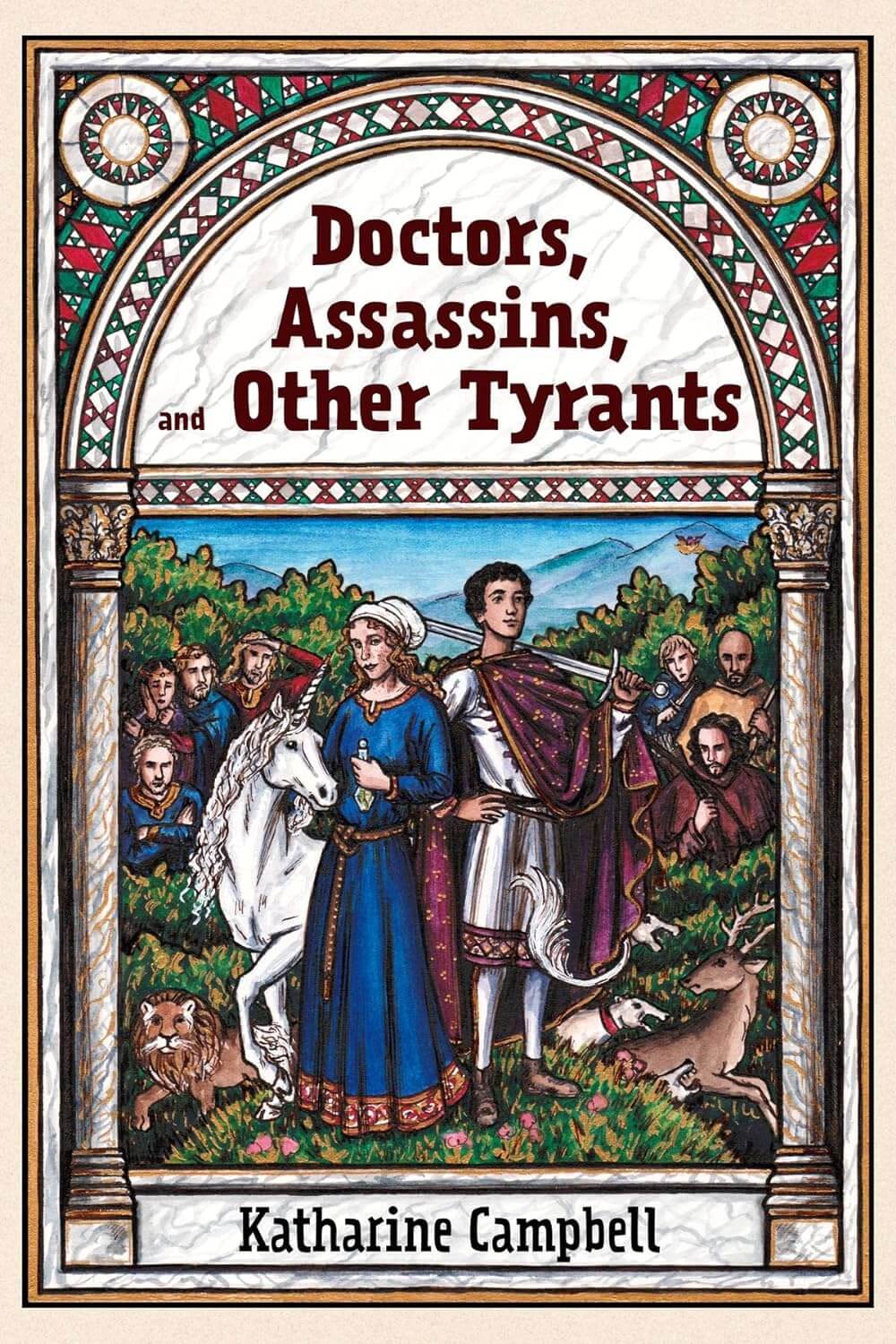Genre
Audience
Author’s Worldview
Catholic
Year Published
2023
Themes
Reviewed by
Corinna Turner
Augustine has his whole life planned out. As the son of an honorable (but deceased, knight) and the stepson of a king, he’s going to marry the doctor’s daughter, Lina, become a knight, and spend his life protecting the innocent, just like his father did before him. Then he’s kidnapped by a man called Wolf, a professional assassin, who plans to take him halfway across the world, and who keeps insisting he’s the son of one of the most infamously awful princes of recent unlamented memory. Augustine doesn’t entertain these absurd claims for a moment, and he’s determined to escape from his captor and get home. Meanwhile, Lina and Oswald (Augustine’s cousin) are hot on Augustine’s trail, along with his stepfather and his army. Can they reach Augustine in time? And will the truth hurt worse than an assassin’s blade?
This fun and quirky historical fantasy is a humorous and heart-warming read. The third book in a series, it can certainly be read as a standalone, although to have read the previous book will allow the reader more context.
Doctors, Assassins, and Other Tyrants has slightly less laugh-out-loud wittiness than the previous two books in the series but makes up for it in other ways, chiefly with some exploration of more serious themes.
The most prominent of these is the basic, but frequently neglected, principle that it is never morally permissible to commit a bad action to achieve a good result. Wolf comes across as a morally confused take on Robin Hood, since he doesn’t merely rob those he sees as the undeserving rich and redistribute their money, he actually sells his skills as an assassin to the highest bidder, killing nobles for hard cash. The hard cash he uses to start sanctuaries for the destitute and desperate—which he considers justifies his actions. After all, he is only killing corrupt nobles—or so he sees it. Augustine, who is pure, good, and as noble-born as they come, presents a serious challenge to Wolf’s thinking. Wolf thinks all nobles are evil; Augustine thinks all nobles are good—therefore, both kidnapper and captive spend much of the book having their eyes opened to reality. These twin themes are likely to be particularly engaging for Catholic and other Christian readers.
The book also has a powerful positive message for those with non-standard families, or who are adopted, or who have a parent they cannot be proud of. A major theme is about everyone’s worth in the eyes of God and in the eyes of those who truly count, regardless of their family history. However, some readers may be uncomfortable about the fact that a truly enormous, identity-upending lie told by a mother seems to be excused by almost every other character on the basis that she does it to protect her child’s feelings. Even leaving aside the immorality of lying to someone who has a right to know the truth, the idea that lying to children about major things is helpful is extremely misguided. Even if the child who is lied to manages to forgive the parent after they find out, the child’s ability to trust may be severely damaged. While it is not out of character or unrealistic that the mother lies, and while the author condemns the lie by making it clear how much it damages Augustine, the attitudes of some of the other characters undermined this slightly (although this was almost certainly not the author’s intention).
Wolf’s story, in particular, feels unresolved at the end, but it’s clear that this is a set-up for the next book in the series, which has the suggestive title The Phoenix and the Wolf, and which will hopefully provide resolution. A second excellent character, another one of the ‘bad guys,’ also has a slightly unsatisfactory resolution since he doesn’t seem to be required to make any restitution for his crimes. Similarly, Augustine’s cousin, Oswald, whose father is king of the neighboring kingdom, has a character arc specifically about learning to be a better person, and a good king one day—and his ending also seems incomplete. However, all three characters have ample opportunity for interesting development in the next book.
Overall, Doctors, Assassins, and Other Tyrants is an absorbing, entertaining read. The constancy between Lina and Augustine will be much-appreciated by romance fans. The quirky chapter titles contribute to keeping the book light and witty, despite the slightly more serious themes (and it even has a comic twist on unicorns!). If Augustine sometimes comes across as a more martial version of Alexander from Love, Treachery, and Other Terrors, well: they are uncle and nephew! Hopefully The Phoenix and the Wolf will be released soon and tie up some loose ends.
The novel has quite a few typos, primarily missing commas, but not enough to prevent its enjoyment.
All fans of comic historical fantasy—Catholic, Protestant or secular—are likely to enjoy this book, since the religious element is extremely light. For absolute maximum enjoyment, it might be best to read Rosaline’s Curse and, especially, Love, Treachery, and Other Terrors first, but readers can dive straight into Doctors, Assassins, and Other Tyrants if they want a quirky, humorous historical fantasy adventure with a strong romantic sub-plot.



